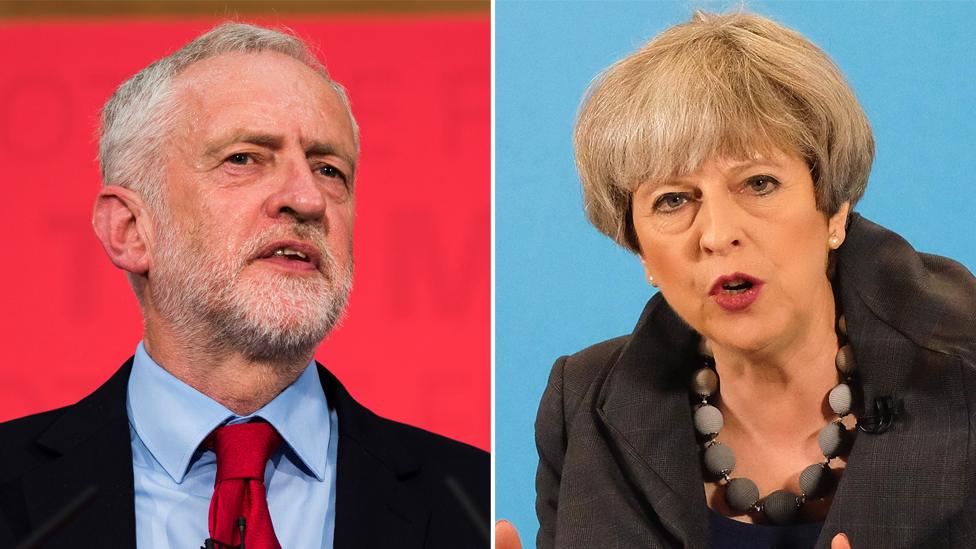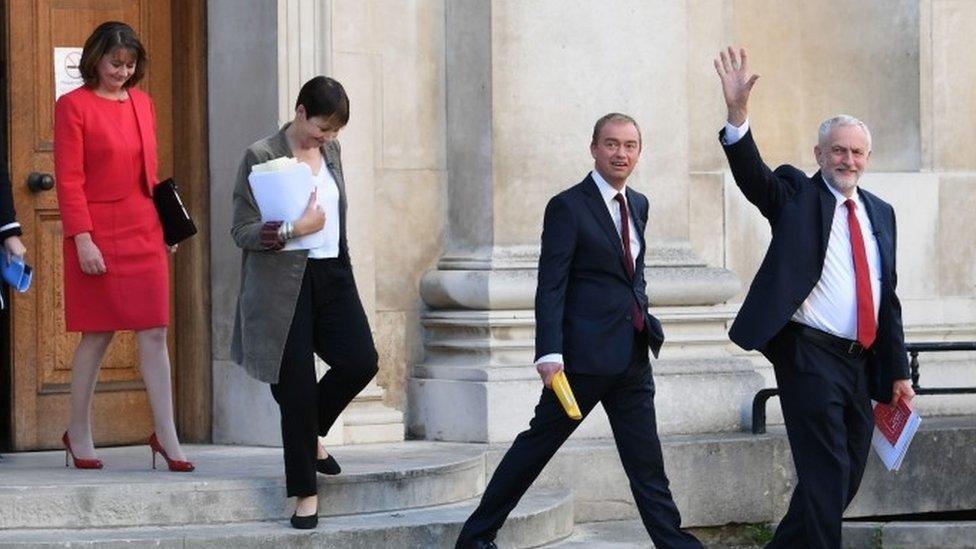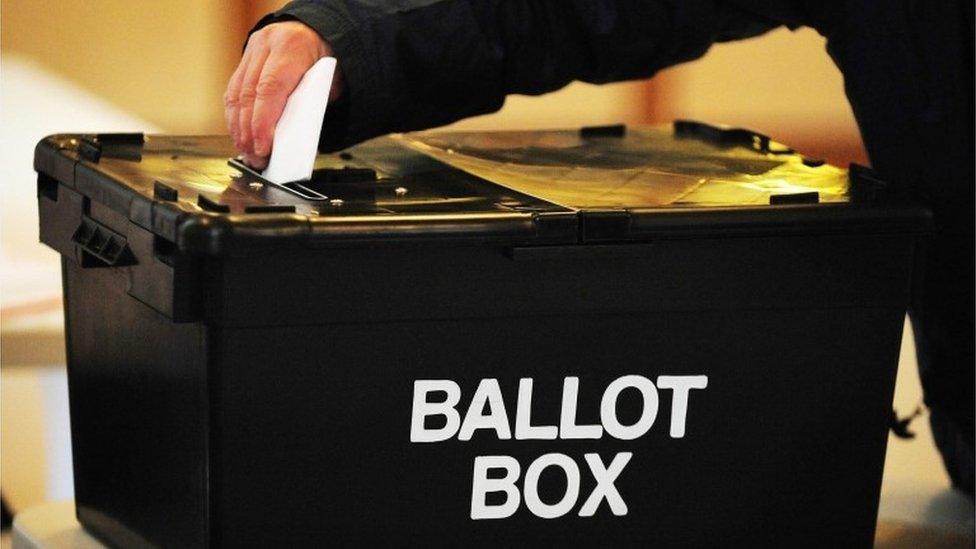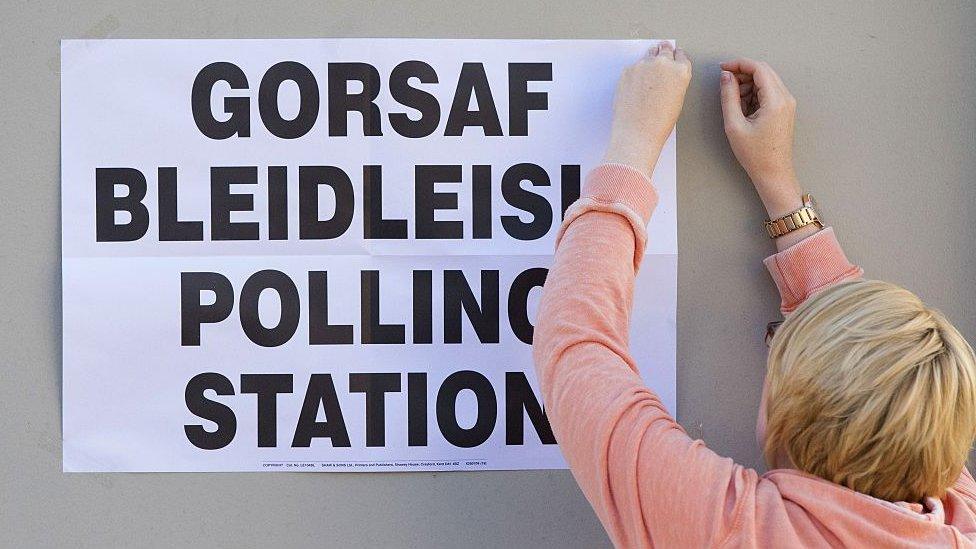June poll was 'hold your nose election,' says vote reform campaign
- Published
- comments

The general election was a two-horse race
Tactical voting reached a new peak at June's general election as voters tried to get round a failed system, according to electoral reform campaigners.
The Electoral Reform Society branded the poll a "hold your nose election," claiming 6.5 million voted tactically rather than for what they believed in.
The Conservatives would have won a majority if just 0.0016% of voters had chosen differently, it found.
The ERS campaigns for the introduction of proportional representation.
Elections for the Westminster Parliament use the "first-past-the-post" system - under which the party that gains the most MPs, rather than the most votes overall, wins.
June's general election, in which Conservative leader Theresa May lost her Commons majority, saw an apparent return to two-party politics as more than 80% of voters cast a ballot for either the Conservatives or Labour.
But a BMG survey of just over 2,000 voters, shortly before polling day, suggested "voters did not flock back to the two largest parties with enthusiasm," according to an ERS analysis, external.
Some 20% of those surveyed said they they would be choosing the candidate that was most likely to beat the one they disliked, it suggested.
"This is over double the proportion who said they would do so in 2015," said the ERS report.
"Projecting this onto actual turnout would equate to nearly 6,500,000 people voting tactically," it explained.
'Denied choice'
The ERS claims the "first-past-the post" system exaggerated political divisions because of the huge discrepancy in the number of votes cast in an area for a party and the number of seats it won.
For instance, Labour won 29% of votes cast in the South East of England but got just 10% of seats, while Conservatives won 34% of the North East but returned just 9% of seats, according to the research.
"For the third time in a row, Westminster's voting system has failed to do what it says on the tin - produce a strong and stable government," said the ERS chief executive, Darren Hughes.
"June's election has shown first-past-the-post is unable to cope with people's changing voting habits - forcing citizens and parties to try and game the system.
"This surge in tactical voting - double the rate of 2015 - meant voters shifted their party allegiances at unprecedented rates, with the second highest level of voter volatility since the inter-war years," Mr Hughes added.
'Going to waste'
Mr Hughes said a system "designed for two parties" was not up to the job of accommodating the "complex electoral swings" seen in modern elections.
"The vast majority of votes are going to waste, with millions still stuck in the electoral black hole of winner-takes-all."
The ERS repeated its call for a new system to be introduced to stop votes being wasted or voters being forced into tactical decisions.
A spokeswoman for the Cabinet Office, which sets electoral rules, said: "First past the post is a voting system that offers a robust method of electing MPs.
"A referendum on changing the voting system for general elections was held in 2011 and the public voted overwhelmingly in favour of keeping the first past the post system," she added.
If the referendum had gone the other way, and the Alternative Vote method had been introduced, Labour would have been chief beneficiaries in 2017, gaining 24 seats, while in 2015 the Conservatives would have doubled their majority from 12 to 24, according to research by YouGov, which asked more than 13,000 people how they would have voted under different electoral systems.
- Published27 July 2017

- Published21 August 2017

- Published21 August 2017
